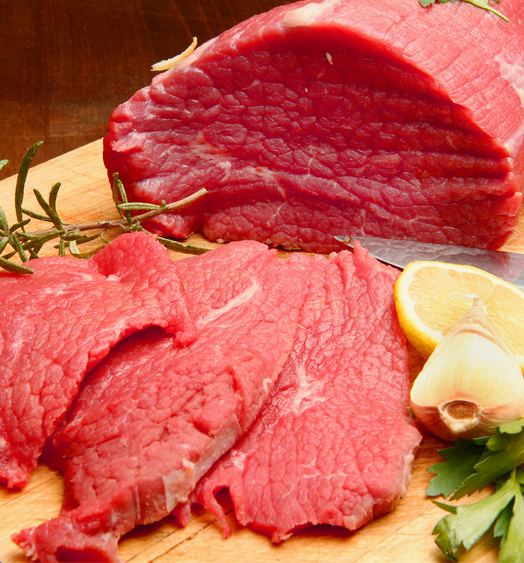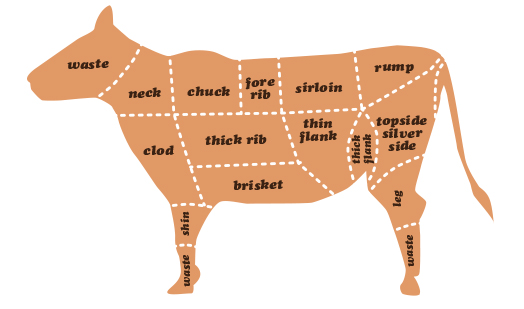Cattle: Worse for the Climate Than Cars
When cows burp and break wind, they're doing more than being rude.
According to a UN report, the livestock industry, which produces milk, dairy and eggs, is estimated to account for a third of the world's methane emissions. It's also responsible for 18 per cent of greenhouse gas emissions worldwide—more than that generated by all the cars, trains and planes in the world combined!
Environmental impact of a meat-heavy diet
Unlike people, cows, goats, and sheep digest food in their multiple stomachs instead of their intestines. They chew the food, regurgitate it as cud, then chew it again. Their stomachs are filled with digestion-conducive bacteria that produce methane, a greenhouse gas that is short-lived but about 70 to 90 times more powerful in trapping heat than carbon dioxide over its lifespan.
Yet not all meat is created equal – cattle, sheep and goats emit more greenhouse gas than, say, pigs and chickens. The average daily cow can expel up to hundreds of litres of methane a day through belching, and a lesser amount through flatulence.

What we can do
Meat, once a luxury item that our ancestors consumed rarely or only during important celebrations, is now regarded as an indispensable part of each and every meal by many city-dwellers. The production of meat has tripled globally since the 1970s.
While not everyone is ready to switch to a 100% vegetarian or a vegan diet, most will find going meatless on certain days of the week a breeze. Meatless Monday, an international campaign founded in the US in 2003, encourages people to refrain from consuming meat on Mondays for better health and a healthier planet. Chinese Premier Wen Jiabao said in a proposal to the Chinese People's Political Consultative Conference in 2010 that if all Chinese citizens went vegetarian for one day per week, China's greenhouse gas emissions could drop significantly.

Green Monday
Beginning in September, The Chinese University of Hong Kong practises 'Green Monday', the local version of Meatless Monday, by promoting the benefits of going meatless and promoting the colourful vegetarian options on offer at our canteens.
Just as our seemingly innocuous eating habits can cause climate change when undertaken on a large scale, small changes to our lifestyle, when put into action collectively, can also benefit the planet.
Trivia: Can I ditch my car and keep my beef?
No, according to Chris Goodall, author of How to Live a Low-Carbon Life, who claims that people with a meat-heavy diet may not necessarily reduce carbon emissions even if they walk instead of drive. According to a study by the Pacific Institute examining this claim, if a person walks for 1.5 miles and burns 120 calories in the process, and the calories come from either top sirloin or ground beef, the carbon emission produced is estimated to be at least 16 to 200 per cent more than that generated by driving a typical British car over the same distance!

How the modern diet is reshaping the planet
- Over 60 billion land animals–about eight times the current human population–are being used worldwide for meat, egg, or dairy production
- Livestock farming accounts for eight per cent of the global human water use
- Forty-five per cent of all land on Earth is used for raising livestock and growing crops to feed them
- Around 70 per cent of the Amazon Rainforest has already been cleared for cattle grazing and feed crop production



